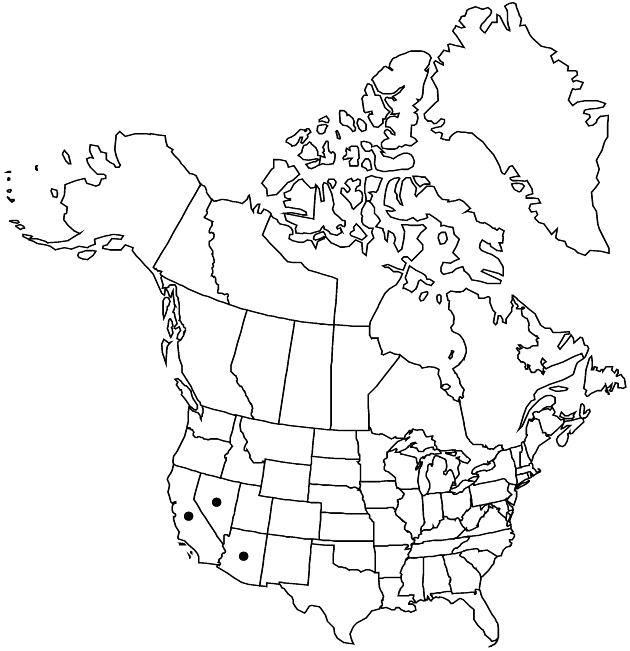Adenophyllum porophylloides
Sida 11: 377. 1986.
Basionym: Dyssodia porophylloides A. Gray Mem. Amer. Acad. Arts, n. s. 5: 322. 1854
Perennials or subshrubs, 20–50+ cm. Leaves pinnately lobed, 15–40 mm, lobes 3–5, linear to cuneate or oblanceolate (oil-glands at base of each lobe and subterminal in tips). Peduncles 20–80 mm. Calyculi of 12–16 subulate bractlets 3–8 mm (bearing glands). Involucres obconic, 10–15 mm. Phyllaries 12–20, lanceolate, separating in fruit. Ray florets 10–14; corollas yellow, becoming red-orange; tubes ca. 2 mm, laminae 6 × 2 mm. Disc florets 25–40; corollas yellow-orange, 7–8 mm. Cypselae 5 mm; pappi of 8–12 scales 7–8 mm, each comprising 7–11 basally connate bristles. 2n = 26.
Phenology: Flowering spring and fall.
Habitat: Alluvial fans and rocky slopes in deserts
Elevation: 0–1200 m
Distribution

Ariz., Calif., Nev., Mexico (Baja California, Sonora).
Discussion
Selected References
None.
Lower Taxa
None.